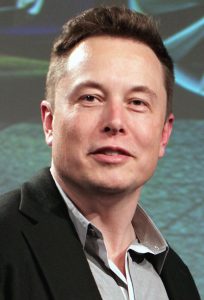Faster, efficient and predictable. These are some of the qualities that make a computer better than humans at computation and analysis of data. Ever since the first computer was made, the key difference between a human and computer has been intelligence. It is the reason humans use computers and not the other way around. However, if a computer were to have intelligence, to what extent would it affect humans? And on how large a scale?
The most common conception of artificial intelligence is a computer of superhuman intelligence capable of outthinking a human. In reality, most of this is true. Take for example a complex game like chess, a chess grandmaster cannot beat AlphaZeroGo (AI). AlphaZeroGo was beaten 100-0 by AlphaZero. OpenAI’s bot managed to beat the world’s top Dota(online multiplayer game) players in 1-v-1 games. It is on course to beating them in 5-v-5 games where the five on the computer’s side is really a one.
Why should this be concerning? Proffessionals in these games have spent thousands of hours practicing. The computer has only spent a few hundred, if not less. The computer does not have the rules of these games written in it’s code. It is allowed to form them; an act of intelligence. The computer can train tirelessly against itself to get better.
 Sebastian Thrun
Sebastian Thrun
Attribution: World Economic Forum [CC BY-SA 2.0], via Wikimedia Commons
The impact of artificial intelligence is not limited to games. Sebastian Thrun of Udacity (an online educational organization) and his colleagues have trained AI in various fields. One of them is an AI that drives car autonomously. This was done in a span of 3 months. Dermatologists train for several years to get proficient at identifying skin cancer. In late 2017, one of the world’s top dermatologists was looked at a mole on a patient’s skin and deduced that it was not cancer. To back their diagnosis, they used Thrun’s AI (different from self driving AI) through their phone which concluded that it was skin cancer. A biopsy revealed an aggressive form of melanoma. Link
 Elon Musk
Elon Musk
Attribution: Steve Jurvetson [CC BY 2.0], via Wikimedia Commons
Why would this be a cause for concern? Elon Musk has been heavily involved in the field of artificial intelligence and he has been recorded stating his concerns about AI on multiple occassions. He has claimed that AI is more dangerous than nuclear weapons. Link Why do some share this concern while others do not? This can be answered by explaining what AI is and what it is not.
AI is most cases deals with a specialized domain. It is trained through a process called Deep Learning. It can be trained to get better than humans, but at specific tasks. For example, Thrun’s self driving AI cannot control a motorcyle on the same road or beat someone at Chess. An AI proficient in multiple domains does not exist at this time. Moreover, there is no governing body to monitor the fabrication of AI.
In conclusion, better communication of science behind AI can help curb the concerns over it and hopefully lead to formation of a body of governance.
This video describes the common misconceptions about artificial intelligence.
Attribution: TED Talks, via YouTube
https://youtu.be/B-Osn1gMNtw
Elon Musk is seen here expressing his concerns about AI.
Attribution: SXSW, via YouTube

One response to “Artificial Intelligence: Should we be concerned?”